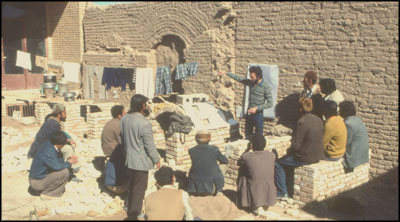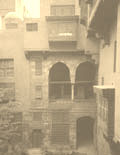
Development Workshop was founded in 1973 in England, to address the issues of human settlement and shelter development in third world countries and less developed communities, and based on the belief that a collaboration between professionals and the inhabitants of poor communities can viably contribute to a sustainable improvement in living conditions, through the use of local resources where possible and the enhancement of local skills.
An early collaboration with Egyptian architect Hassan Fathy in Egypt, Lebanon and Oman provided a source of encouragement and inspiration.
In 1976, DW produced the showed the exhibition “Indigenous Building and the Third World” in Tehran, Iran and at the first UN Habitat conference in Vancouver, Canada, outlining lessons that can be learnt from indigenous practice to meet contemporary needs. That vision remains pertinent in the face of todays’ increasing globalisation.
Evolution
The founding members remain at the heart of DW, but the group has evolved to reflect its geographical spread and regional context. Today DW comprises several autonomous organisations (DW France, DW Angola, DW Canada, DW Mali) each with their own registration, programmes and financial structure, but with a sharing of skills as well.
DWF itself maintains project offices in Burkina Faso and Viet Nam as well as its head office in France. DWF supports the enhancement of local organisations and is committed to helping them access donor support and develop their own programmes (see example of DW Mali).
DWF is governed by an administrative council elected by its membership to which annual activity and financial reports are made. Projects and finances are subject to independent audit. The administrative council nominates the executive officers. DWF maintains a small permanent core staff, with expert inputs as required to provide support to local programme teams. See Annual Reports
DWF is funded on a project by project basis by national and international
development agencies and non-governmental organisations.

